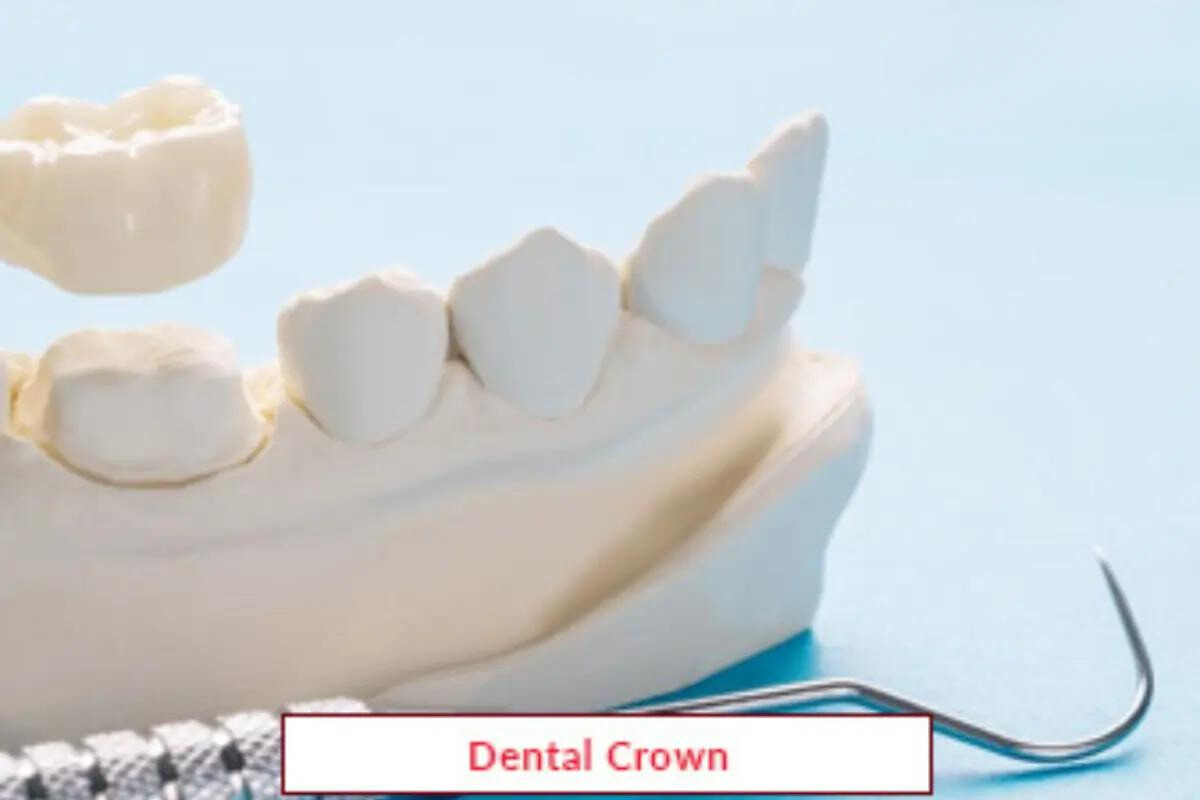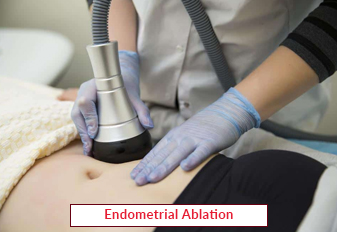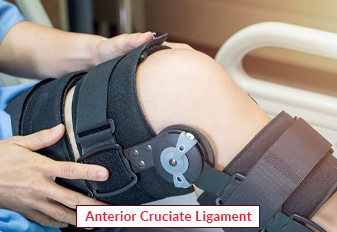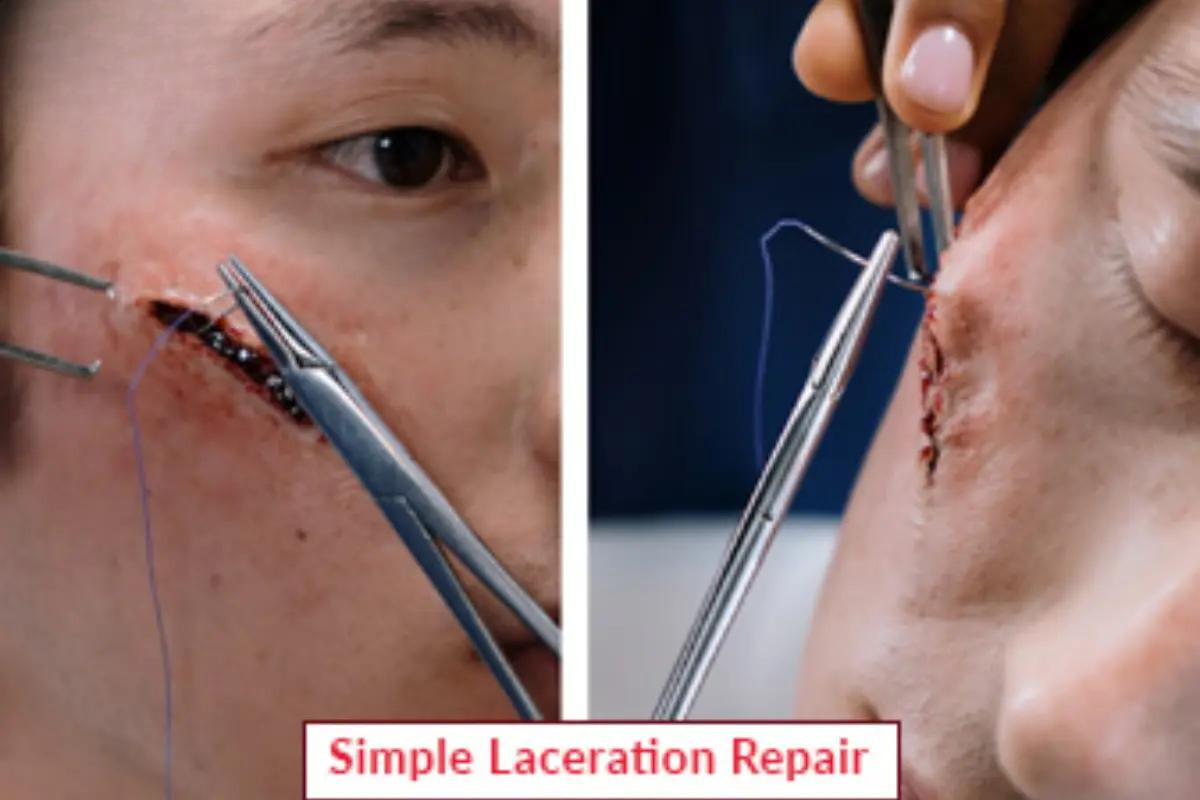Tooth-shaped caps that are set over a damaged or decayed tooth to bring about its size, shape, and appearance is known as a dental crown. The crown top also improves the strength of the tooth. If the major part of the rotten tooth is missing, then the crown is the best solution for it. By placing the crown, a tooth can function normally again. The dental crown cap is fixed to the tooth, protecting it from further damage while improving its overall looks. This treatment is totally popular and the perfect solution for preserving and enhancing the chipped tooth.
Types of Dental Crown
There are several forms of dental crown caps available. Some of them are listed below:
- Metal Crowns: These crowns are made up of different forms of alloys, such as gold, platinum, or metal alloys. These metal tops are recommended for premolars and molar teeth because of their strength and durability.
- Porcelain Fused to Metal Crowns: It is a type of dental repair that combines the strength of a metal alloy with the beautiful charm of ceramic. These are available in many shades to match surrounding teeth.
- Pressed Ceramic Crowns: This is a type of all-ceramic crown made from a single ingot of ceramic material. It brings down the risk of leakage and sensitivity. These ceramic tops are at least two times stronger than other crown tops.
- All-Ceramic or all-Porcelain: Dental crowns provide a better natural color match than any other crown type. This is best for such types of people who have problems with any metal and its reactions. These all-ceramic caps can be used for the front and back teeth of the patients.
- All-Resin Dental Crown: Dental restoration is made from the resin material. It is also suitable for individuals with metal allergies. These crowns have a natural look because they are composed of resin and other materials.
Why Dental Crown Treatment is Needed?
- To hold together pieces of a cracked tooth.
- Prevent a weak tooth from breaking.
- To repair a tooth that is severely worn down or that has already broken.
- When there is little remaining tooth, a large filling is used to support and cover the tooth.
- To secure a dental bridge.
- To hide teeth that are badly discolored or malformed.
- To show a dental implant.
- To alter something purely for aesthetic purposes.
Dental Crown Treatment Procedure
While preparing a tooth for a crown mostly requires two visits to the dentists. In the first visit, examination and preparation of teeth are involved. The second visit involves the placement of the permanent crown. If talk about dental crowns cost, it depends on an expertise of the dentists and which type of crown you have opted for. However, the procedure done through clinical visits which are mentioned below:
Tooth and its Preparation
A dentist will check the decayed tooth to verify if a dental cap is required or not. And discuss the best material and type of crown for your case.
- Examination: A doctor will check the tooth to know if a crown is required or not. After that, the dentist will discuss the best material and which type of crown is suitable.
- Anesthesia: Dentists may give anesthesia to numb the tooth and surrounding area to minimize discomfort.
- Tooth Preparation: A dentist will remove coating from the tooth to make room for the crown. This step is important to ensure a proper fit.
- Impressions: A dentist will take impressions of the prepared tooth and surrounding teeth to create a model for the crown cap.
- Temporary Crown: If required, a tooth doctor may place a temporary crown to protect the tooth until the permanent crown is ready.
Placement of the Crown
- Crown Fabrication: Once the tooth imprint is taken, it is sent to the lab to create a new and suitable crown.
- Crown Try-In: After that dentist will try on the crown to ensure proper fit, shape, and bite.
- Cementation: Once the crown is settled, the tooth specialist will cement it onto the prepared tooth using a specialized dental cement.
- Adjustments: At last, the dentist may make minor adjustments to the crown’s fit or bite.
Care of Dental Crowns
- Teeth should be properly cleaned.
- Go regularly for dental cleanings and examinations.
- Floss between teeth once a day.
- Using an antibacterial mouthwash is quite effective in decreasing the plaque.
- Chewy, crunchy, or hard foods should be avoided for betterment of teeth.
Benefits of Dental Crowns
- It replaces the shape and size of damaged teeth.
- These crowns provide a strong and durable covering for weakened or fractured teeth.
- This treatment helps prevent bacterial ingress and subsequent infection.
- Crown supports teeth that are weakened by decay, cracks, or large fillings and prevents them from breaking.
- Reduce the risk of decay.
- It improved oral hygiene.
Risks Associated with Dental Crowns
- Due to low oral hygiene, it can cause infections around the gum area.
- Gum disease can occur if not properly maintained.
- Increase the chances of decay or damage to the underlying tooth structure.
- Breaking or fracture of the teeth increases with time.
- Redness or swelling of the gums are some allergic reactions that are likely to occur.
- Sometimes it can cause tooth sensitivity.
Latest Health Tips
Can Immunotherapy Cure Stage 4 Lung Cancer?
Early Signs of Cervical Cancer
Foods that Kill Cancer: Leafy Vegetables, Grains, & More
What Stage of Cancer is Immunotherapy Used For?
Which is Worse for Cancer, Sugar or Alcohol?
Vaccines That Prevent Cancer
What Kills Cancer Cells in the Body Naturally?
Early Warning Signs of Bone Cancer
Submit Your Enquiry
Testimonials


























